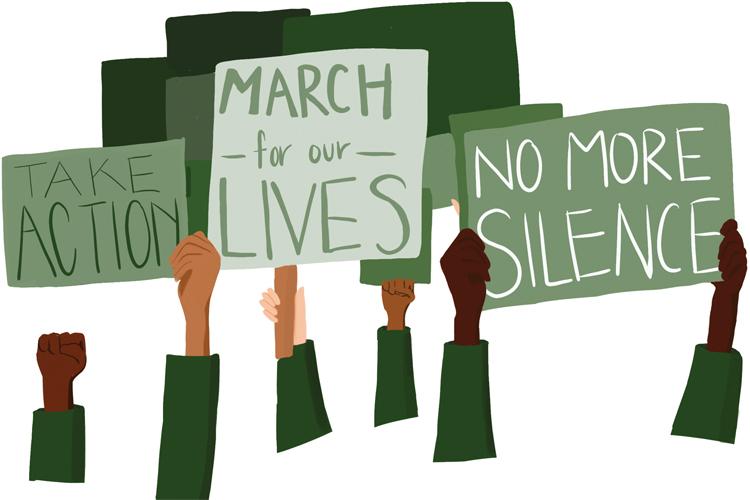In the wake of the shooting at Marjory Stoneman Douglas High School in Parkland, Florida, survivors have created a platform through social media to protest gun violence. A group of students from Stoneman Douglas including Emma González and Alfonso Calderon created the organization, Never Again MSD, that advocates for stricter gun control.
Previously, students used only social media like Twitter and Instagram to voice their opinions on a range of issues including politics. However, the MSD shooting survivors sparked conversations on gun control beyond social media.
Following the shooting, González delivered a powerful speech to a gun control rally in Fort Lau- derdale on Feb. 17. Her words targeted Republican Senator Chuck Grassley of Iowa, who sponsored a bill that prohibits the FBI from performing background checks on people declared mentally ill, and addressed how easy buying a gun in Florida is.
Social media is a beneficial platform to initiate discussions and listen to others’ opinions. Communicating with other citizens through speeches creates unity behind an objective. However, stu- dents also need to enact change by confronting the actual legislation.
These students did take their ideas to legislators. Junior Calderon expressed his sentiments on stricter gun control in Tallahassee on Feb. 21.
“A lot of people think that [being children] dis- qualifies us from even having an opinion on this sort of matter. As if because we’ve been through a traumatic experience, that we don’t know what we’re talking about,” Calderon said. “And I want everyone to remember, that is not the case.”
Often, politicians do not account teenagers’s ideas, but legislation affects children, too.
Besides using their voices on social media to persuade politicians, Never Again MSD in collaboration with Everytown for Gun Safety planned a student-led demonstration, March for Our Lives, for March 24. Protesters demanded universal background checks, closing the loophole that allows people to buy firearms at gun shows, banning the selling of high capacity magazines and raising the age of gun ownership to 21.
Although movements build solidarity, politicians rarely change their stand on issues. Thus, students should replace those who are writing legislation by organizing voting parties and encouraging others to vote.
Discussions on social media should not stop either, and students should continue to reach out to their peers across the United States to discuss the challenges that they all face as citizens who are often overlooked when considering legislation.
Students need to persist in challenging politicians by writing letters to their representatives or making phone calls to their local government offices.
Generation Z, the up and coming voices in the United States, will one day be the ones who might represent American voices in the government. For now, all we can do is continue starting conversations and articulating our concerns about legislation and in politics whether that be through social media, talks with legislators or marches.
Story by Maria Harrison, Features Editor
Illustration by Anoushka Singhania







